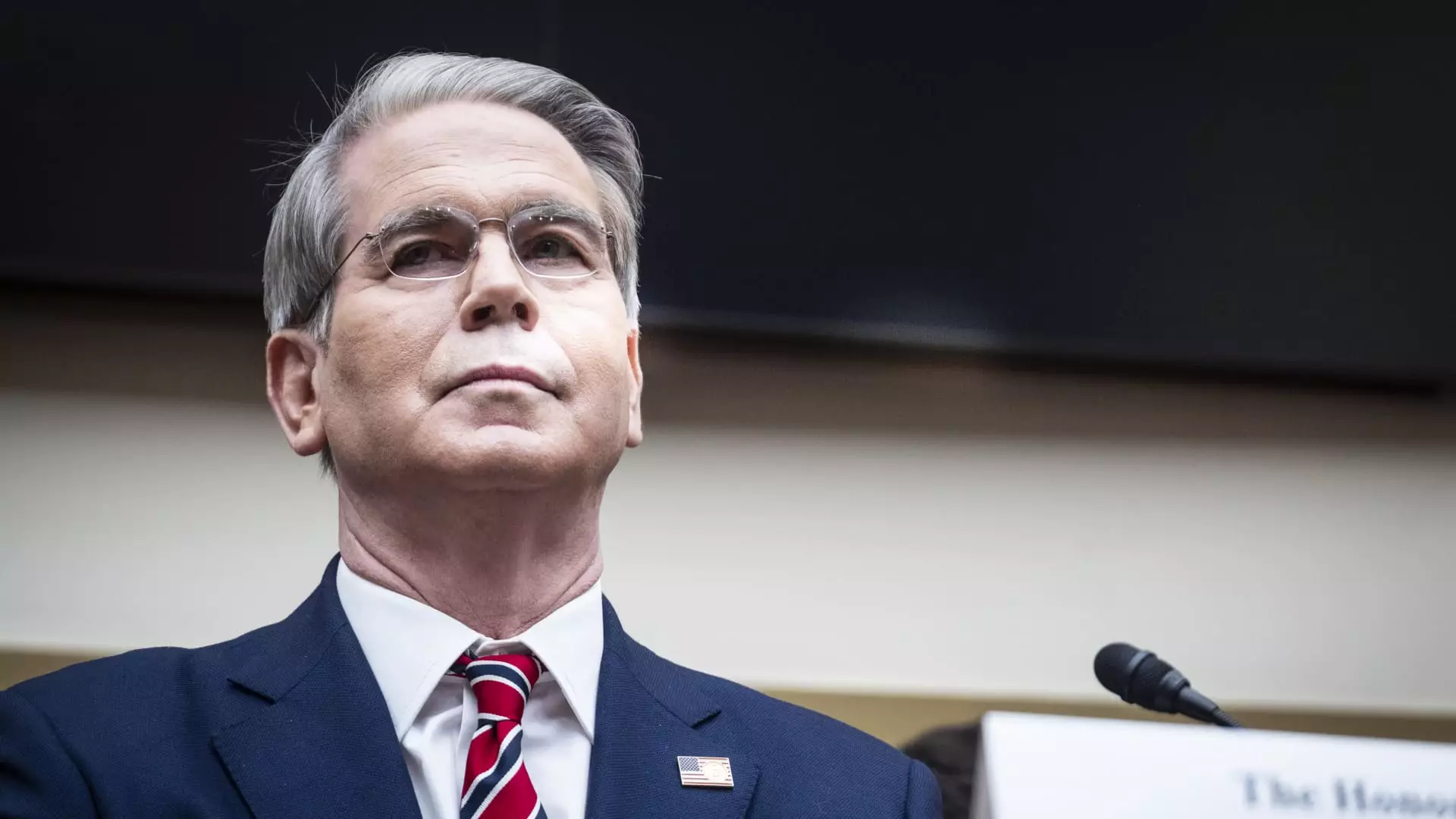In a striking announcement, Moody’s Investors Service made headlines by downgrading the U.S. credit rating from Aaa to Aa1, a move that reverberates across the economic landscape. This decision highlights not just the immediate financial ramifications but also the deeper issues rooted in government expenditure. Treasury Secretary Scott Bessent, appearing on NBC’s “Meet the Press,” labeled the downgrade a “lagging indicator,” suggesting that the agency’s ratings often fall behind the reality of economic conditions. His sentiment indicates a troubling disconnect between economic forecasts and governmental fiscal policies.
Bessent’s assertion that the downgrade reflects over a decade of increasing government debt is sobering. The national debt, now an astonishing $36.22 trillion, didn’t accumulate overnight; rather, it’s been the product of both democratic and republican administrations focusing on expansive welfare and infrastructural projects without sufficient revenue to support them. Critically, the responsibility lies heavily on the shoulders of spending policies championed by the Biden administration, which many deem reckless. This trend, if left unchecked, raises existential questions about fiscal responsibility, economic sustainability, and the burdens placed on future generations.
Investment or Excess? The Clash of Ideologies
It’s hard to overlook the prevailing narrative that positions these exorbitant spending habits as necessary investments in critical sectors like healthcare and climate change. While these areas are undoubtedly important, the reality is that lofty ideals should not foster fiscal irresponsibility. With more than a decade of rising interest payments alongside mounting debt ratios, the distinction between investing in the future and squandering resources becomes increasingly blurred.
Bessent emphatically pointed to the correlations between the U.S.’s ballooning debt and the issues plaguing its credit rating. This isn’t merely a political talking point; it reflects a stark reality where bipartisan enthusiasm for expansive federal policies has led to a bloated budget. The question that remains is: at what cost? The American economy has often been regarded as a shining beacon of stability—this credit downgrade threatens that image, urging citizens, businesses, and lawmakers alike to re-evaluate their priorities.
Retail Giants and Tariff Tribulations
The recent discussions surrounding tariffs, particularly Walmart’s statements regarding absorbing costs linked to such policies, have added layers of complexity to the economic narrative. Secretary Bessent, in his dialogue with Doug McMillon, suggested a cooperative relationship exists between the government and corporations, a viewpoint that’s increasingly contested. Walmart’s CFO has openly expressed concerns about rising consumer prices, clearly indicating that tariffs impact the end consumer despite assurances to the contrary.
Moreover, the interplay between corporate profit margins and federal policies raises uncomfortable questions. Businesses operating in tight margins may find it unsustainable to perpetually absorb costs, leading to a trickle-down effect where consumers ultimately bear the brunt of elevated prices. The administration’s attempts at regulatory negotiation seem stymied by market realities, and individuals, particularly in the center-right ideological camp, worry that reliance on corporate goodwill may not be sufficient to stem inflationary tides.
The Politics of Unconventional Gifts
While debates surrounding tariffs and credit ratings dominate headlines, Secretary Bessent’s remarks regarding luxury gifts from nations like Qatar reveal a striking dimension to America’s foreign relations. The notion that substantial financial commitments could be viewed as “gifts” —and the ensuing media frenzy around the Air Force One situation—suggests a narrative manipulation by political adversaries. It’s vital to scrutinize the motivations behind such critiques: are they rooted in genuine concern for national integrity, or are they mere fodder for partisan discourse?
Bessent positioned these investments as beneficial to American citizens, reinforcing that collaborative international relations can yield tangible benefits. But skepticism remains among conservative factions that warn of eroding national standards when foreign nations can seemingly “buy” favor with gifts. This troubling dynamic further complicates the U.S.’s position as a global leader and challenges the typical values of meritocracy and prudence that underpin American exceptionalism.
The Steep Path Ahead: Facing Economic Reality
With the specter of recession looming, particularly given the escalation of national debt and credit rating decline, the future appears grim for aspiring entrepreneurs and homebuyers alike. Rising interest rates are often a direct consequence of deteriorating credit ratings and could serve as a significant barrier to economic mobility. If the current trajectory persists without accountability or correction in fiscal policy, the ramifications may stretch far beyond the sound bites of political debate, challenging the very economic foundation upon which much of America rests.
As the nation grapples with the implications of these factors, it is essential for voters and leaders alike to advocate for a return to responsible fiscal governance that prioritizes sustainable growth over populist spending. Only then can America hope to regain its previous stature as a model of economic fortitude.

